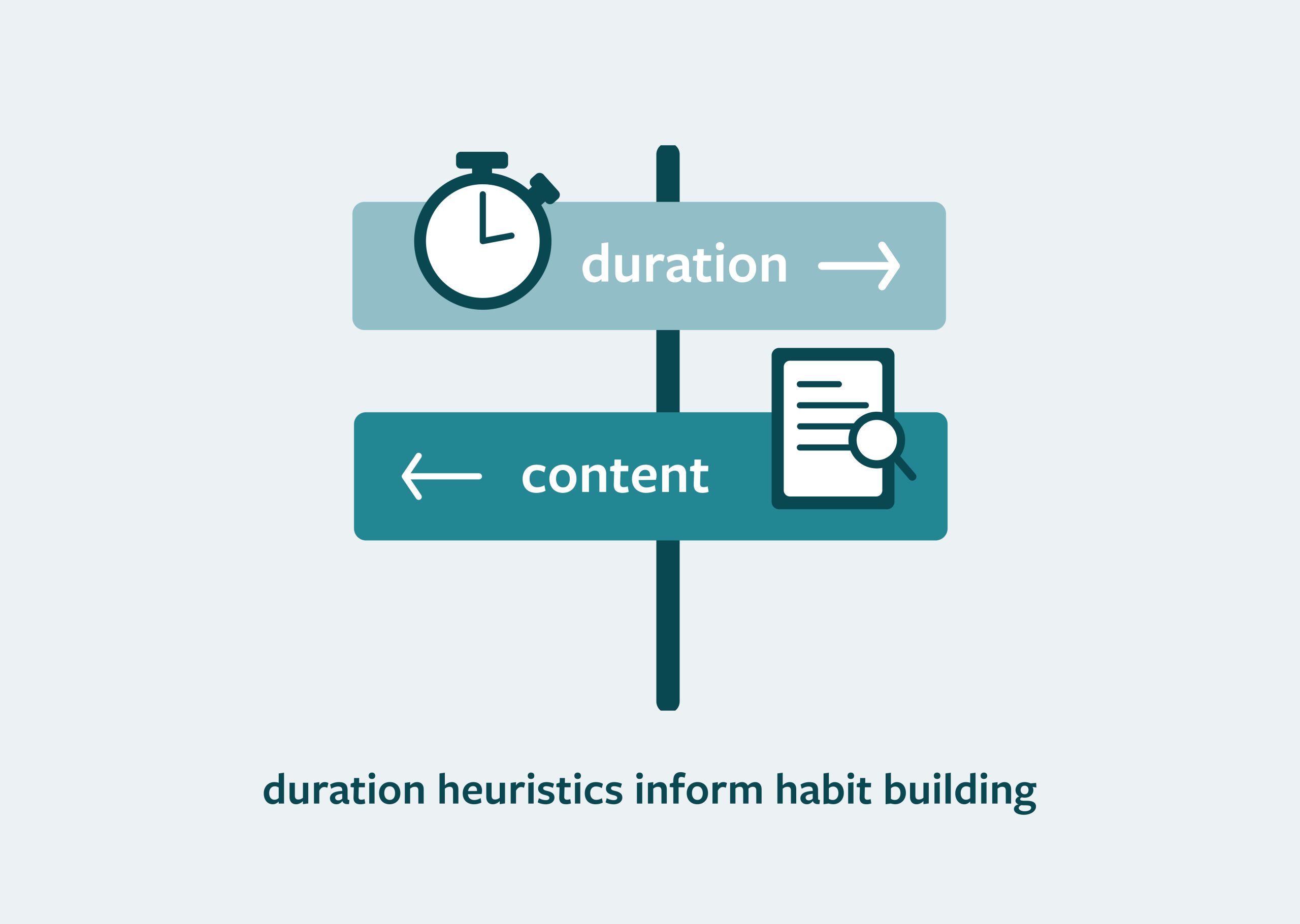
Building Healthy Habits: The Behavioral Economics of Duration Heuristics in Healthcare
In healthcare, building healthy habits is key to achieving optimal physical and mental health. From eating a balanced diet to getting enough exercise, forming positive habits can have a profound impact on one’s wellbeing. However, the process of building healthy habits is often easier said than done. Behavioral economics can provide insights into how people make decisions and can offer strategies for developing healthy habits. In particular, the concept of duration heuristics can be a useful tool for creating lasting positive habits.
A duration heuristic is a cognitive shortcut that people use to evaluate options based on how long they will take rather than on their content. This heuristic is particularly relevant when comparing two choices. Since the duration of time can be measured objectively, it is often used as a way to infer the value of a choice. For example, someone might choose to exercise for 30 minutes instead of an hour, assuming that the shorter duration is less burdensome and easier to fit into their schedule.
In healthcare, duration heuristics can be both helpful and harmful. On the one hand, they can motivate people to engage in healthy behaviors by making them seem less daunting. For example, someone who wants to start meditating may find it easier to commit to just five minutes a day rather than 30 minutes. On the other hand, duration heuristics can also lead people to make poor choices if they overemphasize the duration of an activity over its content. For example, someone may choose a diet plan that promises quick results over a more balanced and sustainable approach because the former seems like it will require less time and effort.
To make the most of duration heuristics in healthcare, it is important to understand how they work and how to use them effectively. One strategy is to break down healthy behaviors into smaller, more manageable chunks. For example, instead of committing to an hour-long workout every day, someone might start with just 10 minutes of exercise and gradually increase the duration over time. This approach allows people to build healthy habits gradually and avoid feeling overwhelmed.
Another strategy is to frame healthy behaviors in terms of their benefits rather than their duration. For example, instead of focusing on how long a meditation session will take, someone might emphasize the stress-reducing benefits of the practice. This approach can help people to prioritize the value of healthy behaviors over the time they take to complete.
In addition to these strategies, healthcare providers can use behavioral economics principles to design interventions that are more effective at building healthy habits. For example, they might use nudges to encourage people to make healthier choices, such as placing healthy snacks at eye level in a cafeteria or offering rewards for completing a certain number of workouts. They might also use social proof to encourage people to adopt healthy habits by highlighting the positive outcomes experienced by others who have made similar changes.
In conclusion, duration heuristics can be a powerful tool for building healthy habits in healthcare. By understanding how people use this heuristic to make decisions, healthcare providers can design interventions that are more effective at promoting positive behaviors. Whether by breaking down healthy habits into smaller chunks, framing them in terms of benefits, or using behavioral economics principles to design interventions, there are many ways to make the most of duration heuristics in healthcare.



FEEL FREE TO DROP US A LINE.